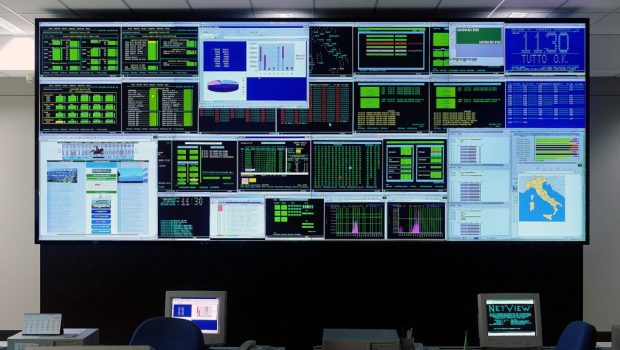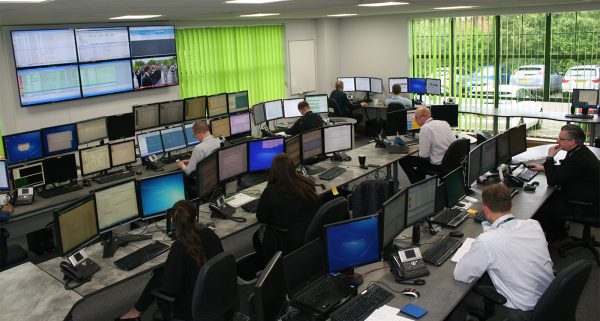How the Customer Experience is Impacting the Evolution of the NOC
A network operations centre (NOC) is a location from which a network is monitored, managed and otherwise overseen. Essentially, it is the job of the NOC to ensure the network remains operational, and this can mean taking action to deal with network failures, site failures, power outages, DDoS attacks and other threats.
In recent times, the nature of the network operations centre has evolved and this is, in no small part, because of changes to customer expectations in many industries. In this article, we take a closer look at this evolution and explore how the customer experience is impacting the way a modern NOC functions.
Demand For 24/7 Network Uptime
In the past, it was primarily large enterprises that ran 24/7 network operations centres. After all, the costs involved in delivering such an operation can be very high. However, in the modern business world, this is no longer the case, with SMEs also trading for longer business hours and often functioning on a 24/7 basis.
This change has been driven almost entirely by technological advances and the associated changes to customer expectations. For instance, internet-connected smartphones and other devices have driven demand from customers for the ability to make purchases at any time of the day, and a huge number of SMEs have responded to this.
Often, in order to deliver the right response, SMEs are turning to professional companies offering managed IT services. In fact, Fifosys has around 200 clients that fall primarily within the SME market place and of these, around 80 percent rely on their systems being operational 24 hours a day, seven days a week.
As Amitabh Sharma points out in an article published on the LinkedIn Pulse platform, this shift in the balance of power towards customers has led to a blurring of the lines between NOC monitoring services and service operations centre (SOC) techniques, and this is one of the major ways customer experience has helped NOC to evolve.
The managed services market has also become extremely competitive, making it harder for a managed service provider (MSP) to stand out. While some may be able to use marketing gimmicks, the reality is that the quality of the services being offered is the main competitive differentiator and offering SOC services can be valuable here.
Understanding NOC Monitoring and SOC
For providers of managed IT services operating in 2019 and beyond, the idea of change within operations centres is widely accepted. Indeed, over the past two decades, IT companies have been required to shift from single technology, single service networks to having multi-technology, multi-service networks.
This rapid technological evolution has presented MSPs with one of their main operational challenges. As Cyrus Durgin mentions in an article for SDX Central, operating a modern network is about more than monitoring and managing it, and a modern NOC is having to embrace SOC concepts and approaches.
So what is a service operations centre, or SOC, and how does it actually differ from NOC monitoring?
While the NOC traditionally handled incidents associated with network availability and performance, fixing issues if they arise, the SOC is traditionally more concerned with determining the quality of the service being provided, preventing any decline in that quality, and stopping a customer’s ability to carry out their duties from being compromised. This requires a slightly different skill set from traditional NOC services.
Blurred Lines Between NOC and SOC
In truth, over the past 20 years or so, the NOC and SOC concepts have become much more blurred, and this has required IT service providers to evolve, so that they are covering all of this ground.
One of the key areas where NOC and SOC meet is when it comes to pinpointing what is impacting a clients’ own service delivery. To do this, a modern MSP will need to look at both historic and real-time network performance data, to identify what is causing problems, but also pre-empt problems before they have any major impact.
While this difference between responding to problems and pre-empting them has sometimes been seen as a dividing line between NOC and SOC, it is becoming a much less useful separation. The SOC approach of foreseeing outcomes, in order to prevent drops in quality, can work in cohesion with the classic NOC approach.
The increased importance of the customer experience has meant that NOC teams also have a greater responsibility to understand the commercial impact of network performance. Therefore, they may need to employ a wider range of performance metrics and use different methods to actually ensure network performance remains strong at all times.
Backup, Disaster Recovery & IT Business Continuity
Finally, the customer experience has also impacted upon the evolution of NOC by making data back up services, disaster recovery and IT business continuity solutions more important for SMEs to acquire.
In the modern business environment, it is essential that an MSP can offer data back up solutions, ensuring that data loss is not a terminal problem for their clients. This activity should be tracked via a ticketing system like ConnectWise and should form part of the infrastructure management schedule.
Given the modern-day reliance on IT systems, the need for data to be readily available, and the potentially disastrous consequences associated with systems going down or data being permanently lost, IT business continuity solutions are also more vital than ever before and procedures must be reviewed and tested on a regular basis.
With the right procedures and solutions in place, managed service providers should be in a position to guarantee that business continuity is possible, even in the event of serious incidents, such as system malfunctions, malicious attacks from third parties, or disasters which compromise the integrity of hardware or physical structures.

















